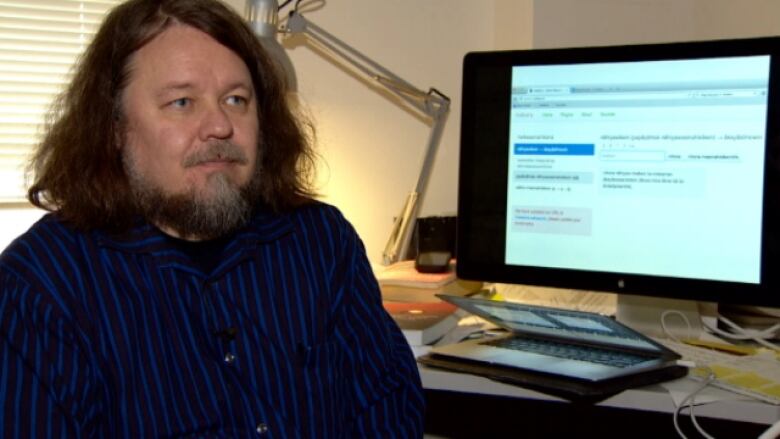Plains Cree-to-English dictionary underway at the University of Alberta
Dictionary expected to be ready within next year
PaigeLHirondelle studies Cree every day. The language, once widely spoken by her family, has begun to slip into history.
I think it is slowly dying, said LHirondelle, who is taking native studies at the University of Alberta.I didnt even know what is supposed to be my own language.
The legacy of Canadas residential schools, which prevented generations from learning their indigenous languages, means there are fewerCree speakers every year. LHirondelle, 19, said her family knowsbut doesn't speak to her in Cree, nor do many others where she grew up in the EastPrairie Mtis Settlement, near High Prairie, Alta.

That was our own sacred language. To not being connected to our own language, we are taking a step back from our own culture and traditions.
Its not an easy task; Cree is a complex and richly descriptive language, one where different intonations can completely change the meanings of words.
As a fluent speaker, you don't realize all of that is happening, said Cree instructor Dorothy Thunder.
Thunder has partnered with AnttiArppe, a linguistics professor who is designing an electronic Plains Cree-to-English dictionary to help students learn the language.
Before the dictionary, when students came across an unknown word, they would have to look it up in a textbook or glossary: a time-consuming process that doesnt always bear fruit.
Thunder said the new dictionary would allow students to use the technology they use every day smartphones and tablets to search a muchlarger collection of Cree words.

Because of our changing world a word for a refrigerator, a word for a computer for a computer, aword for a mobile phone all of these have to be created, he said.
A language lives. The tools are never finished.
Arppe said the dictionary is the first step to developing other tools to help people learn Cree things like spell-checking programs that users of other languages take for granted.
Work on the dictionary has already begun. Arppe expectsto have a version ready in the next year, with an app to follow.
For Thunder, its a project that will do more than keep Cree words from slipping into history. Its a task that will help many people reconnect with somethingthat was taken away long ago.
I feel much better speaking my own language. It comforts me. It's who I am, she said.
It [sounds]almost like singing a lullaby.













_(720p).jpg)


 OFFICIAL HD MUSIC VIDEO.jpg)
.jpg)



























































































